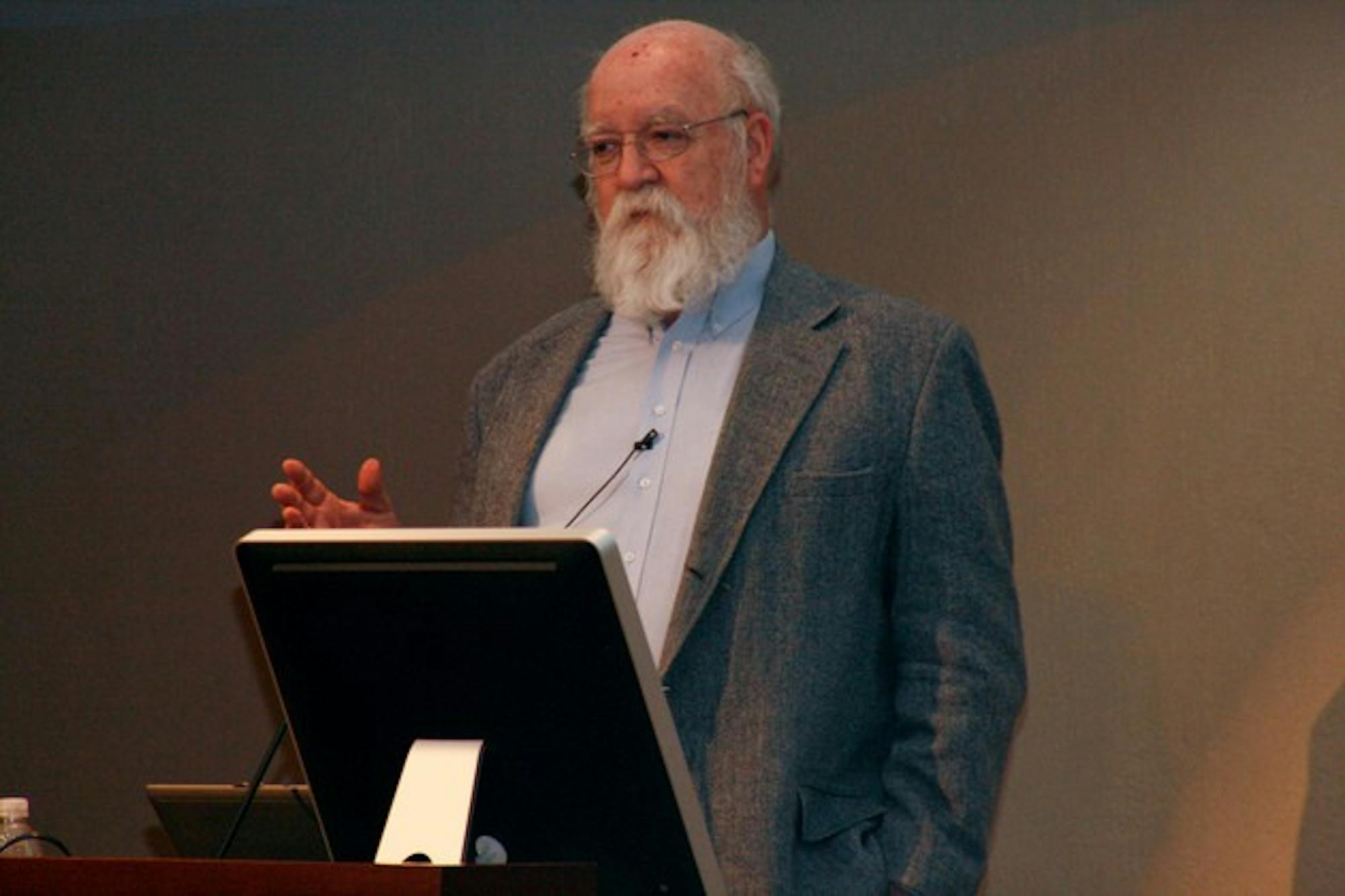Dennett said religions are "brilliantly designed products," but that the presence of religion does not prove God's existence: A design does not necessarily mean there is a designer, he said.
Religion is a type of "meme," an idea passed from person to person that evolves much like a virus, Dennett said. Viruses, like memes, are not alive, but still develop according to the laws of natural selection, he said.
"If survival of the fittest has any validity as a slogan, then the Bible seems a fit candidate for the accolade of the fittest of the texts," he said.
Memes can cause people to act against their evolutionary interests, Dennett said, much like some parasites that drive their hosts to be eaten by predators so that the virus can use the predator as a new host. Religion and other memes have inspired people to die for their beliefs even though such actions may decrease an individual's chances of long-term survival, Dennett said.
Religious memes have adapted in order to survive, according to Dennett. Some religious tenets, including the belief that humans should not question God, are defensive mechanisms to ensure that the meme is not challenged, he said.
Religion also benefits believers, he said, by fortifying their convictions and providing a powerful "placebo effect." Dennett compared religion to the magic feather in the movie Dumbo, for example. Dumbo always had the ability to fly, but only the feather gave him the courage to do so.
"There is no good reason to believe in Zeus, Poseidon or Allah," he said. "But there are good reasons to say you do."
Dennett said he believes faith in God has harmed humanity by protecting destructive movements such as Islamic terrorism and threatening the scientific world view.
"Remember that Dumbo threw away his own crutch," he said. "I think it is time to grow up."
Atheists who defend religion because of the social good they believe it provides -- not religious fundamentalists -- are the greatest impediment to the atheist movement, Dennett said. Many atheists are afraid to admit their atheism, he said, and some choose to describe themselves as agnostics because of a perceived stigma against those who do not believe in God.
Despite resistance from both secularists and fundamentalists, the world is becoming increasingly secular, Dennett said. He predicted that within the next few generations, religion will have lost its perceived dominance. Religion may become more of community organization without a set creed or something practiced by a minority -- like smoking -- that is looked down on by most people, he said.




